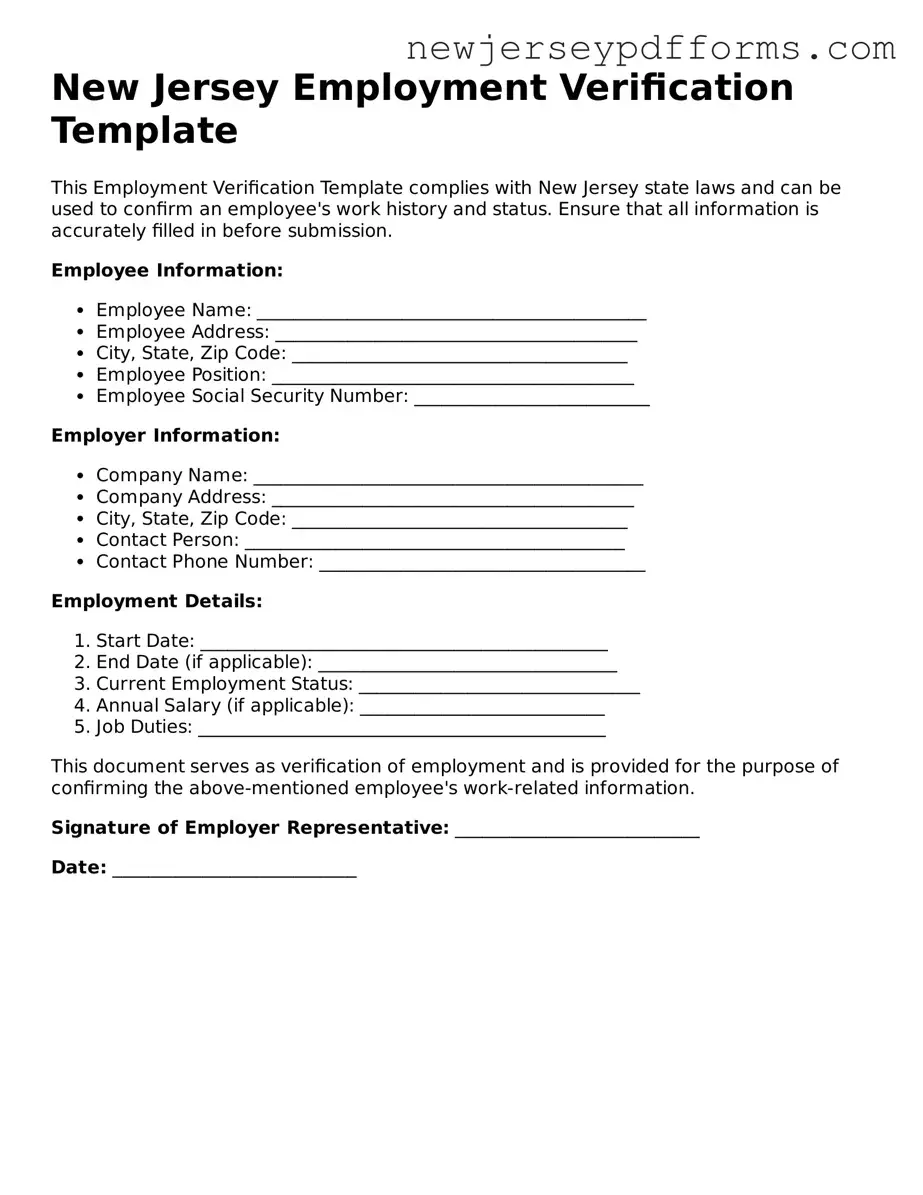Valid Employment Verification Document for the State of New Jersey
The New Jersey Employment Verification form is a document used to confirm an individual's employment status and details. This form is essential for various purposes, including securing loans, applying for government benefits, and fulfilling other verification needs. To ensure accuracy and compliance, it is important to fill out the form correctly; click the button below to get started.
Open Editor Here

Valid Employment Verification Document for the State of New Jersey
Open Editor Here

Open Editor Here
or
Download Employment Verification PDF Form
Complete the form before time runs out
Edit your Employment Verification online and complete it quickly.